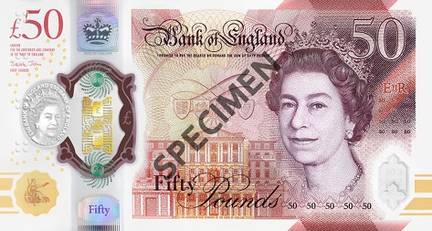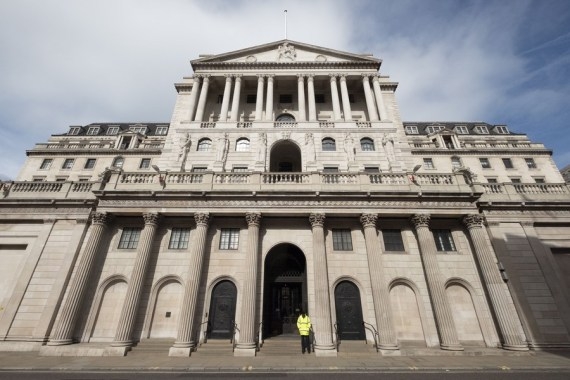This would be the BoE’s tenth interest rate rise in a row, since it started tightening policy in December 2021, adding to the pressure on homeowners…reports Asian Lite News
The Bank of England (BoE) is expected to increase interest rates for the tenth consecutive time this Thursday in another blow to mortgage holders.
Markets expect a 0.5 percentage point increase in the central bank’s base rate to 4%, its highest level since the 2008 financial crisis.
“As wage growth and core inflation have continued to surprise to the upside, we expect another +50bp [basis point] hike on Thursday, in line with market pricing,” Peder Beck-Friis, portfolio manager at PIMCO, said.
This would be the BoE’s tenth interest rate rise in a row, since it started tightening policy in December 2021, adding to the pressure on homeowners.
Matthew Ryan, head of market strategy at Ebury, predicts a 50bp hike due to a lack of clear evidence of a downward trend in inflation.
“Since the December meeting, we think that macroeconomic news out of the UK has mixed ramifications for monetary policy though, on balance, we are pencilling in another 50bp rate increase this week,” he said.
“The focus among committee members clearly remains on inflation and, as of yet, we are yet to clear evidence of a downward trend in either the headline or core CPI measures.”
Forecasting group The EY Item Club predicts that the BoE will deliver better economic news along with the 50bp rise.
“A significant fall in gas prices, lower market interest rate expectations and an economy less weak than expected should cause the Bank of England to dial back on the downbeat economic outlook of its last forecast when it presents new projections on Thursday,” it said.
“Stubborn core inflation and strong pay growth mean another 50 basis points rise in bank rate is likely. But the EY ITEM Club thinks this increase could prove the end of the current rate-rising cycle.”
Deutsche Bank’s (DB) senior economist Sanja Ray also sees interest rates hitting 4% this Thursday.
“Will they meet market pricing of 50bp, or surprise and downshift to 25bp? Our long-standing view has been that the MPC will deliver one more 50bp hike in February before downshifting to more ‘normal’ sized hikes in March and May, taking bank rate to a peak of 4.5%,” he said.
The half a percentage point hike by the BoE would raise interest rates to their highest levels since autumn 2008 when Lehman Brothers filed for bankruptcy and kickstarted the great financial crisis.
The level of the increase, however, is still shrouded in some level of uncertainty as some traders recall the lack of unanimity in the last meeting.
“As for the BoE, a 0.5% rise to 4.0% also looks likely although is rather less certain given the marked disagreement at the last MPC [Monetary Policy Committee] meeting on whether to raise rates or leave them unchanged,” Rupert Thompson, chief economist at Kingswood, cautioned.
The MPC split three ways in December, with two members – Silvana Tenreyro and Swati Dhingra – voting to end rate increases, while Catherine Mann backed a larger 0.75 percentage point move.
Investec Economics also expects a smaller rate hike that would take it to 3.75% on Thursday, before peaking at 4% in March.
“Recent weeks have ushered in a greater sense of economic optimism,” Philip Shaw, chief economist at Investec, said.
“This has been driven partly by the mild European winter, which has helped to avoid a need for energy rationing, contributing to a substantial fall in current spot gas prices as well as gas price futures.
Threadneedle Street is trying to walk a very fine line. It does not want to push the UK into a recession by raising borrowing costs but its mandate is to keep inflation at around 2%.
The rate of inflation eased to 10.5% but remains close to a 40-year high as UK households continue to be squeezed by the cost of living crisis. Businesses are being crushed by struggling to find affordable credit.
“Weaker growth and the large exposure of the UK economy to the housing market mean the Bank of England may be reluctant to aggressively raise rates at this time,” said Frédérique Carrier, head of investment strategy for RBC Wealth Management in the British Isles and Asia.

“The consensus peak rate of 4.4% might not be reached. Consequently, higher inflation is likely to linger for longer.”
While inflation is now falling thanks to softening energy prices, there are fears that persistent strong wage growth could still keep it well above the BoE’s 2% target.
The Bank’s former chief economist has warned that the BoE must slowdown interest rate rises to avoid undermining the UK’s recovery.
Andy Haldane told the BBC Radio 4’s Today programme last week: “I’d have preferred the Bank and other central banks to have started their rate rises a bit sooner.
“That would have helped a bit in nipping inflation in the bud and would have meant that we wouldn’t have had those rapid rate rises at the same time as the economy was hitting the buffers.”
ALSO READ-Bank of England unveils design of King Charles banknotes

